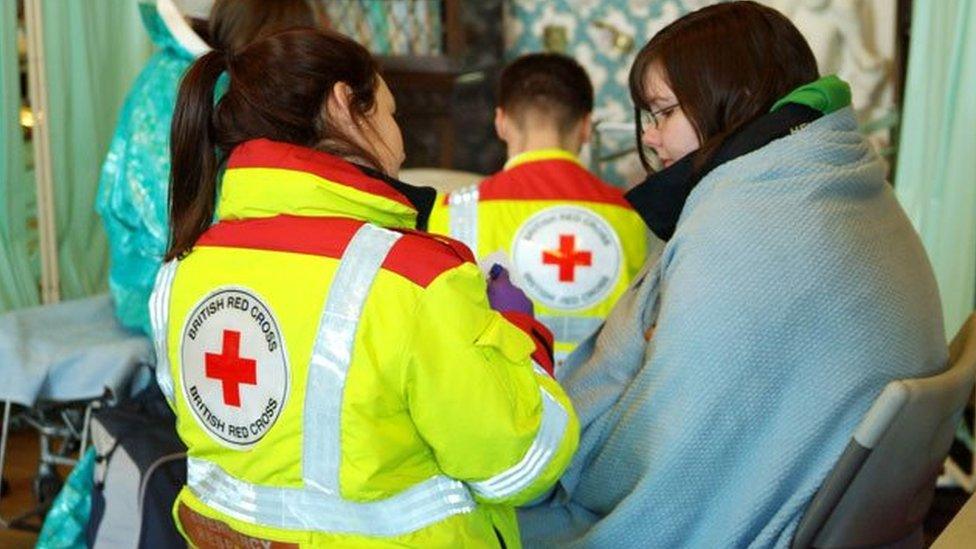NHS Health Check: Voices from the NHS frontline
- Published

The hospital boss: 'It's the worst I've ever known it'
Andrew Foster is the chief executive of Wrightington, Wigan and Leigh NHS Foundation Trust. It is one of the best performing hospital trusts and up until a year ago it was meeting the four-hour A&E target.
But that began to change in 2016. Instead of hitting the 95% target for patients to be seen and treated or admitted, performance dropped to 90% and then 85% in the autumn, before it nosedived following Christmas.
"It started from Boxing Day onwards," says Mr Foster. "We had an outbreak of norovirus which closed three wards and led to 75 staff being off sick. Seven care homes had to shut too.
"It meant our performance dropped to around 60%. It was the worst three weeks I've ever known. Cubicles in A&E were full, we had ambulance staff queuing in the corridors and we could not get patients out of hospital. The whole system backed up."
Since mid-January pressures have eased with four-hour performance back above 80%. But Mr Foster is still worried.
"The problem we have is that we are seeing more and more patients coming to A&E who could be seen by a GP and then we are finding it more difficult to discharge patients. There are simply not the places available any more because of the cuts to social care or we are seeing care homes and families themselves saying that the person's care is too complex. They end up staying in hospital."

The hospital doctor: 'Staff are close to breaking point'
Simon Walsh is a consultant in an A&E department in a major trauma centre in London.
"This year things have been closer to breaking point than I've ever known it before," he says.
"The set of nights I worked in the period before Christmas were the most difficult I remember working in the last 10 years.
"There was just such pressure on the system and as a result the exit block was so sustained that we had patients stuck for hours on end because there weren't any beds available to admit them on to wards. We had in excess of 20 patients at times for the whole night. And it just paralyses the emergency department."
He says patients and their families were understanding, even though they were frustrated.
"The relatives expressed their frustration but it wasn't anger directed at us - they recognised it was factors out of our control."
But he says morale was low among staff.
"I don't think I've ever seen such tired, exhausted people, they were absolutely dead on their feet.
"People try and keep each other up with as high morale as they can but I think people in that period were close to breaking point.
"I wondered if people would actually come back for the next shift after a couple of the nights we did."

The nurse: 'Calling it a humanitarian crisis is not hyperbole, it is the reality'
Kimberley Gardner is a nurse at a major trauma centre in the East Midlands working in the critical care department, while her partner is also a nurse in the emergency department.
She says calling the situation in the NHS a humanitarian crisis, as the Red Cross did in January, "is not hyperbole, it is the reality".
"It is the worst I've ever known it.
"During the coalition years we heard the term 'black alert' being thrown around, but it would never actually happen, it seemed as likely as a major disaster or terrorist attack - devastating- but highly unlikely. Now it's a weekly and sometimes daily occurrence and the novelty has worn off.
"Daily we get a phone call from an emergency department begging critical care for equipment to monitor patients as all of their resus bays have been 'doubled up' (where they put two patients in one bay) meaning they need two monitors but only have one. They ask us but we have run out also."
She says another issue is not enough trained paramedics or dispatchers for 111, the NHS non-emergency phoneline.
"The amount of people sent in by 111 to be on the safe side, it's a total failure.
"I saw a woman brought in by ambulance after eating a tin of Quality Street and she was vomiting - why would she ring an ambulance but also why did the crew bring her in? Because a lot of the time they are technicians and not trained paramedics so bring them in to be on the safe side."

Head of clinical services: 'We've had some very difficult days'
Julie Orr is the head of clinical services for Milton Keynes University Hospital NHS Foundation Trust. She oversees the flow of patients through the hospital managing the site team, bed managers and discharge team.
"It's been a challenge this winter. I think the main difference has been that it's been sustained pressure. It's been quite relentless rather than periods of a couple of weeks of pressure.
"I've been in the NHS for 30 years and this is probably one of the most sustained, relentlessly pressured winters that I've seen.
"People don't really have time to catch their breath before the next onslaught of pressures."
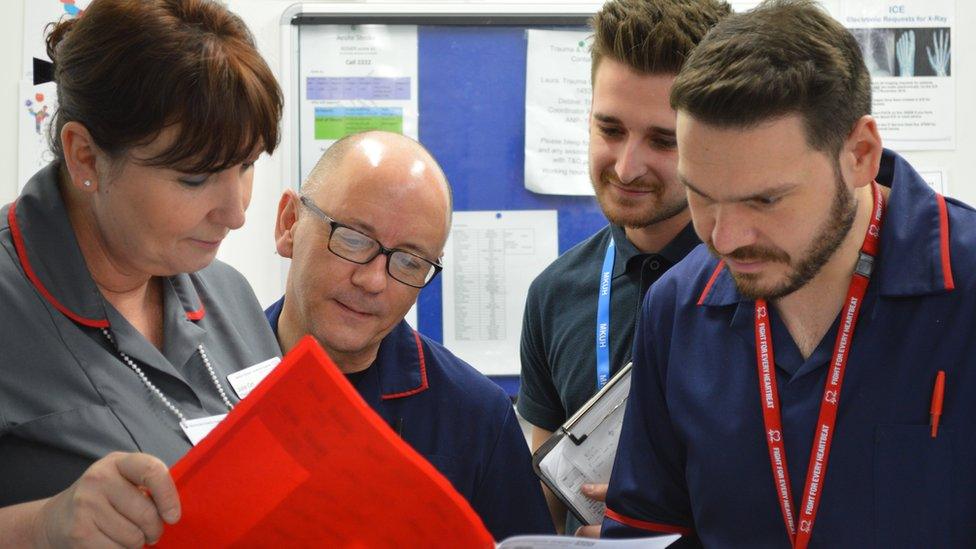
Julie Orr with her team
A former nursing manager, she says all her team are senior clinicians and move around the site ensuring the flow of patients through the hospital.
"We've had some very difficult days, which has meant that not only the site team but the managers on call and the executive on call have been on site for many, many hours into the night to make sure the patients are safe and that the staff are supported."
But she says her teams have coped "remarkably well" despite the pressure.
"Obviously it's very difficult. We all want to do the best for our patients and want to get them home wherever possible or on to the next stage of their journey - I think sometimes there's not an understanding of why that can't happen. My discharge team along with the ward nursing teams spend a lot of time with patients trying to explain why there might be a delay in that happening."

The director of adult social care: "We are at a tipping point"
Grainne Siggins is director of adult social care for the London Borough of Newham.
"Our staff and our staff within the NHS have worked incredibly hard this winter, it's been really difficult. But in December working positively with our colleagues we didn't have any delayed transfers (out of hospital) at all due to social care."
She knows from speaking to her local peers within London they are an "outlier" to be in this situation.
Because of the borough's diverse population and high levels of deprivation and health issues they bring, the team has had to "proactively plan" - but she says "it's becoming increasingly difficult going forward".
She says they have been heavily supported by their clinical commissioning group.
"Councils are currently prioritising adults and children's services above other areas of spending, but that will only go so far and we do feel we are at a tipping point and that's been borne out this winter - it's difficult to see how the whole system will be able to be sustained next year."
And she says the ageing population means assessments are taking much longer.
"People have got much more complex needs, multiple long term conditions, so we've got that added level of complexity.
"We've seen a significant increase in the level of support we then have to provide to people to make sure they can go home safely and that they are appropriately supported."

The GP: "There is a real crisis in GP staffing"
Dr Olivia Hum has been a GP since 2007. She works in a surgery in Lewes, east Sussex.
"The intensity of the work in 2017 is really bad. We work 10-12 hours a day without a break," she says.
She says the demand on GPs has increased "because of the pressure on hospitals".
"A&E is too crowded which means that people are not diagnosed properly and they come to the GP for the rest of their health problems. They then bounce back to the hospital.
"The local hospital has seen a huge decline in funding, so people are on six to nine-month waiting lists. This has a huge impact on GPs who are dealing with the deteriorating symptoms of people waiting for tests or treatment, including patients who have symptoms of cancer. This waiting also has huge personal impact on patients, it increases their worry and stress."
She adds: "There is a real crisis in GP staffing. Lots of practices are closing, so patients try to register at the practice next door which has no space. GPs are burning out, they are overworked and many are retiring early. The system is unsustainable now.
"It is just impossible to provide extra appointments in practices. I know GPs with almost twice as many patients as I have and they can only provide care at a very basic level. It is not safe - the brain can't make these decisions properly in less than 10 minutes. In these cases, quality of care and patient safety is compromised."

NHS Health Check

A week of coverage by BBC News examining the state of the NHS across the UK as it comes under intense pressure during its busiest time of the year.

- Published21 February 2017
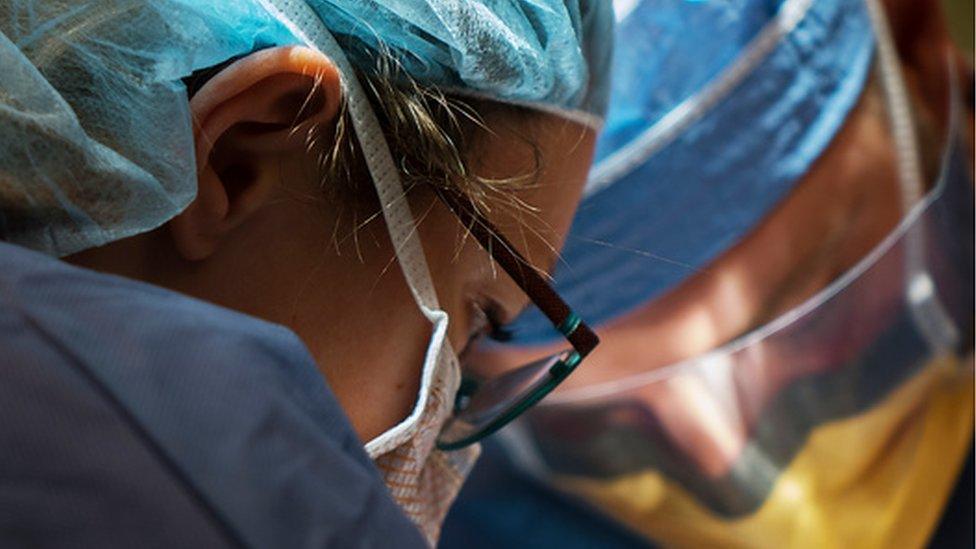
- Published6 February 2017
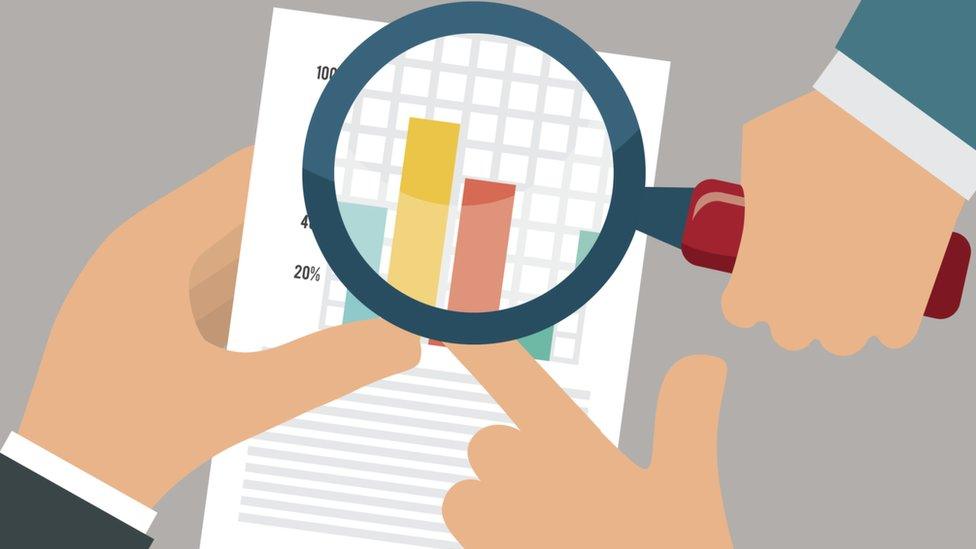
- Published6 February 2017
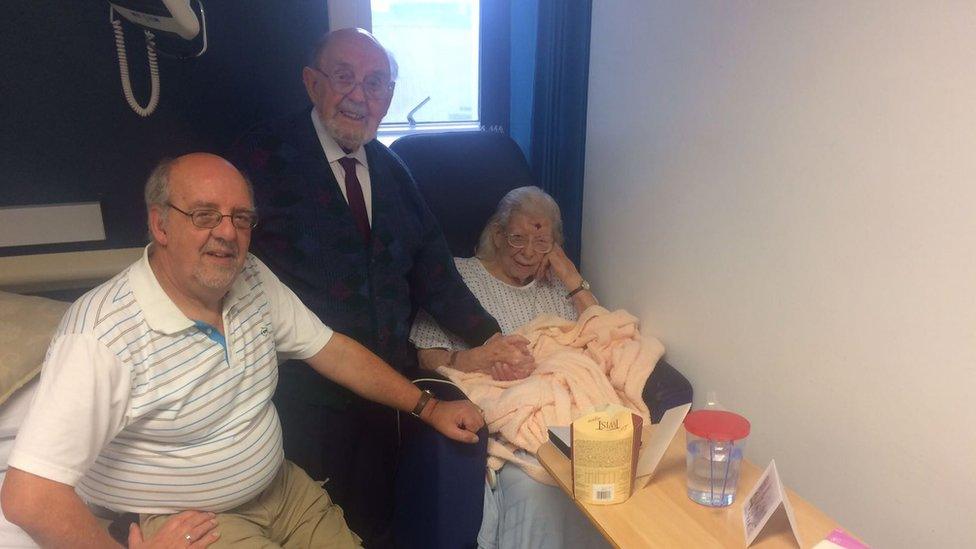
- Published20 January 2017
- Published19 January 2017
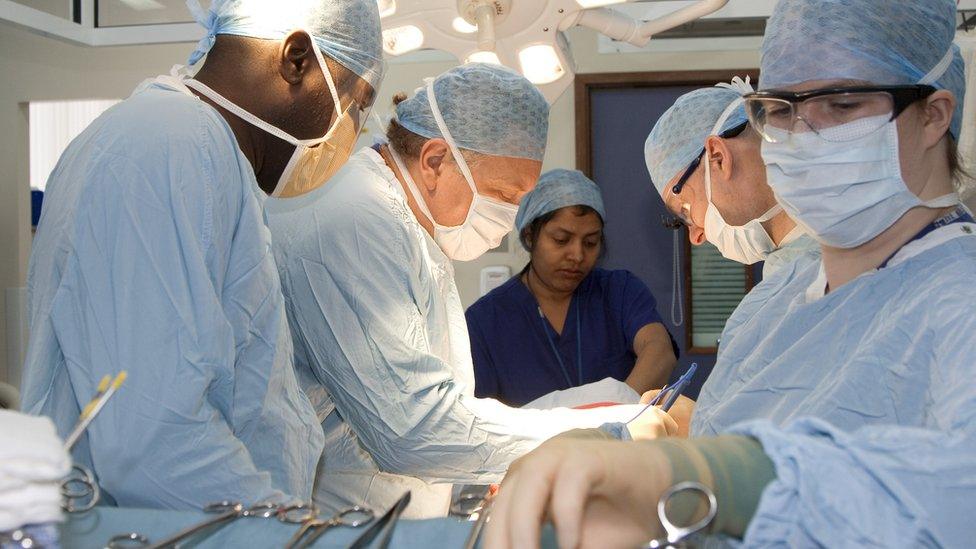
- Published18 January 2017
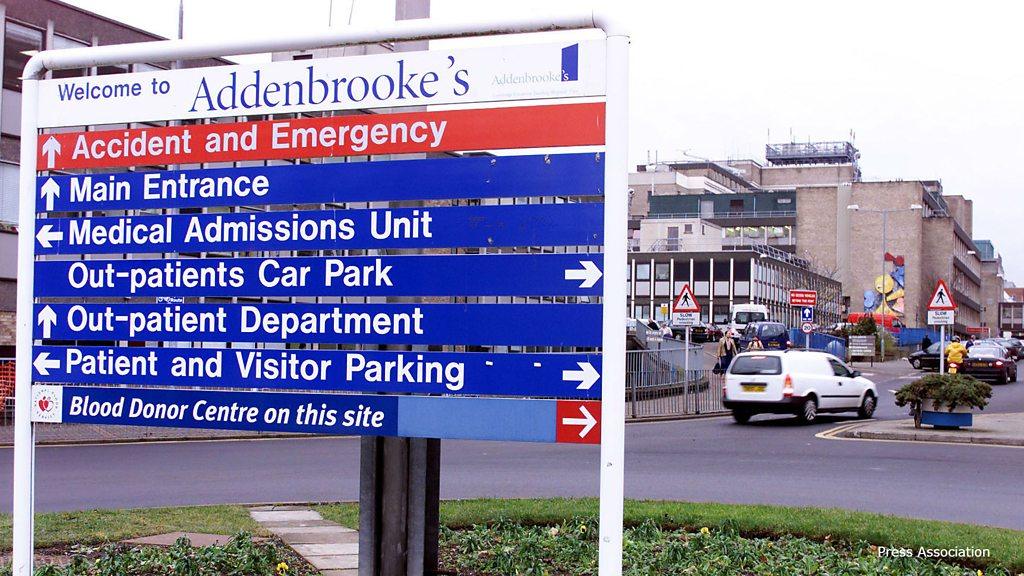
- Published16 January 2017
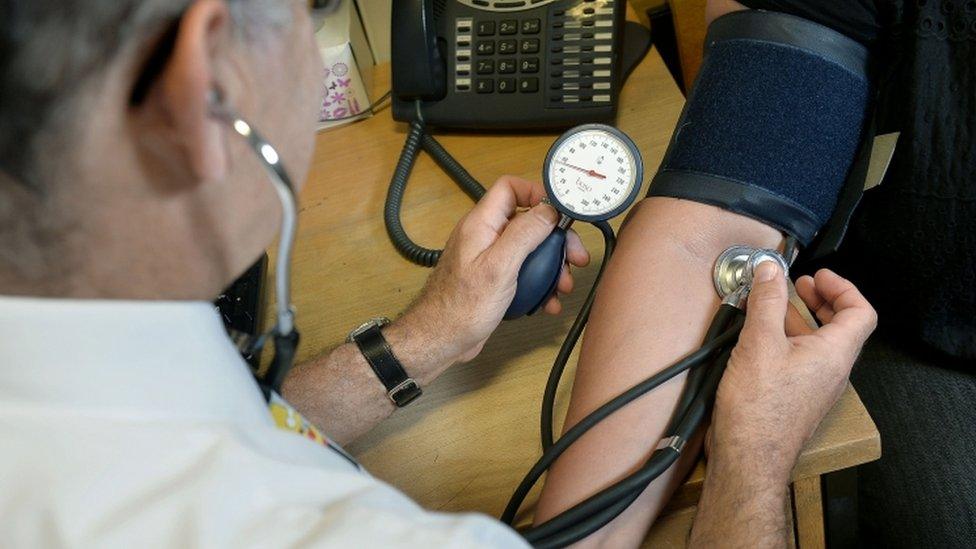
- Published11 January 2017
- Published7 January 2017
